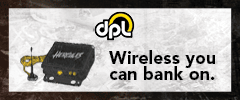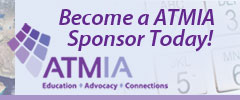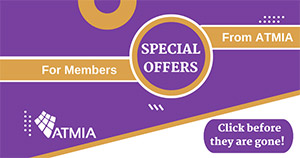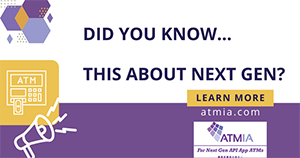
What's the future for cash? Target register outages prove physical loot still has its place
Wednesday, June 19, 2019
View ShowroomDoes the use of cash have an expiration date?
The evidence that physical loot is on borrowed time is slowly but surely mounting. But don’t read the last rites for cash just yet.
If anything, the checkout register outages at Target stores over the weekend were a reminder that point-of-sale machines aren’t foolproof, and nothing beats cash when technology fails.
With that in mind, you may want to keep a modest stash handy.
.jpg)
Still, you’ve gotten quite comfortable leaving most bills and coins behind. More of you, in fact, are placing your smartphone or smart watch near the checkout registers to pay for this or that thing, using services such as Apple Pay or Google Pay. Your wallet, and any money stashed inside, remains in your pocket.
You’re equally cool, and so are your buddies, settling debts and swapping funds digitally, via the likes of Venmo, PayPal or Zelle.
Americans generally are becoming less reliant on physical currency, with 29% of U.S. adults indicating in a recent Pew study that they make no purchases using cash during a typical week, up from 24% in 2015.
How much cash should you keep for an emergency?
The Target episode proved that you shouldn’t count out cash. Some Target shoppers on Sunday reported that the stores could accept cash (or checks) but not process their credit cards, though this snag was much smaller than far bigger outages that took out Target registers a day earlier, which prevented payments via plastic, and yes, cash too.
“I think (the Target episode) is a blip that everybody will quickly forget about,” says Greg McBride, chief financial analyst at Bankrate.com. “However, it is a reminder to all of us that we have to have a certain amount of cash just in case of isolated occurrences,” such as in the aftermath of a hurricane when the power goes out.
How much cash you should keep around for emergencies varies of course, depending on your circumstances. McBride, who frequently travels for business, says he keeps enough to hop in a cab to the airport.
Other people USA TODAY canvassed said they typically carry between $20 and $50, though the amount is sometimes less.
“The big picture still is you don’t want to have an overabundance of cash either in your pocket or stuffed under the mattress due to the risk of loss and theft. Plastic offers protections against those scenarios, cash does not,” McBride says.
As you would expect, Mastercard senior vice president for communications Seth Eisen makes a similar pitch.
While acknowledging that "cash will have a role to play in the foreseeable future in some cultures and for some type of purchases," Eisen says that "Electronic payments – the credit, debit and prepaid cards we’re all familiar with no matter what form they take – are an opportunity to provide people and businesses with greater security, greater transparency and greater certainty when they make a payment or are paid themselves.”
Eisen also believes the focus on "maximizing the technologies, programs and partners that have the potential to evolve the payments industry and enhance the value we can deliver to our customers and cardholders...drives financial inclusion and will help drive more participation in our increasingly digital economy," including among unbanked consumers.
Cash is still king when it comes to the smallest purchases. Forty-five percent of consumers who own rewards credit cards polled last year by CreditCards.com were using cash for purchases under $10. That compared to 30% of consumers who use debit cards for such purchases, and 23% who use credit cards.
The survey also found that $25 was the median purchase total at which rewards cardholders indicated it made sense to use credit.
“I’m tempted to quote Mark Twain. The death of cash has been greatly exaggerated,” says McBride. “It’s definitely in decline and will continue to decline. When it goes away completely, it’s hard to put a time frame on it.”
Read the full news article here.
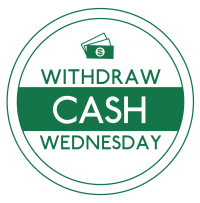 The Withdraw Cash Wednesday campaign is designed to promote consumer cash usage by reminding consumers to withdraw cash from the ATM the Wednesday before the U.S. Thanksgiving holiday for their Christmas Black Friday shopping needs and every Wednesday for their weekend endeavors. Backed by ATMIA, the campaign is also designed to educate consumers about the benefits of cash such as using it as a budgeting tool, reducing debt and saving money by not having to pay credit card interest fees and saving time at the checkout.
The Withdraw Cash Wednesday campaign is designed to promote consumer cash usage by reminding consumers to withdraw cash from the ATM the Wednesday before the U.S. Thanksgiving holiday for their Christmas Black Friday shopping needs and every Wednesday for their weekend endeavors. Backed by ATMIA, the campaign is also designed to educate consumers about the benefits of cash such as using it as a budgeting tool, reducing debt and saving money by not having to pay credit card interest fees and saving time at the checkout.
You can learn more about WCW by visiting the website and cash blog.
Additional Resources from ATM Industry Association
- 4/18/2024 - 3 myths about accepting cash at self service
- 4/18/2024 - Upcoming ATMIA/ASA Committee Meetings: April and May 2024
- 4/18/2024 - ATMIA Joins Atlanta Fed Meeting on Best Practices for ATM Cash Replenishment
- 4/18/2024 - Cryptocurrency Legislation at the State Level Still Outpacing Other Types of Legislation
- 4/18/2024 - Moving ATMs Into the Future with Cash Recycling
- Show All ATM Industry Association Press Releases / Blog Posts







